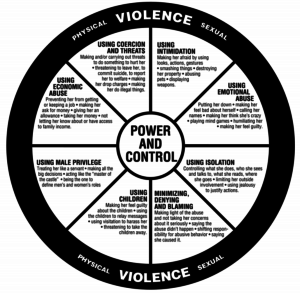Effective Anger Management Strategies for Adults
Though anger is a useful emotion to have at times, it becomes a big liability when it runs rampant every time things don’t go your way. When uncontrolled, relationships are damaged, your reputation is tarnished, and peace of mind is lost.
In this article, we look at some sound techniques for managing anger so that your life and your walk with Christ will not be damaged because of anger.
Helpful Anger Management Tools
Recognize the Anger Warning Signs
Similar to many other mental and physical disorders, it is important to recognize if you are about to lose control. If this can be done, then the anger management tools can be made use of. It helps to pay attention to what triggers your uncontrollable anger – what scenarios, who are usually involved, and how were you feeling at the time. Once this is known, you can already prepare yourself before entering similar situations. Huntington Beach Christian Counseling can help you develop strategies and techniques to manage your anger in a healthy, constructive way.
 It is also essential to know the warning signs that you are about to have a meltdown. Physically, you may experience increased heart rate, heavy breathing, jaw clenching or teeth grinding, clenching of fists, shaking, headache, stomach ache, or the reddening of the face.
It is also essential to know the warning signs that you are about to have a meltdown. Physically, you may experience increased heart rate, heavy breathing, jaw clenching or teeth grinding, clenching of fists, shaking, headache, stomach ache, or the reddening of the face.
Mentally and emotionally, you may have feelings of violence (e.g. hitting, throwing, or breaking things); you may be obsessing over the problem, or your mind may go blank. There may also be specific actions that occur before you fully lose control such as constant pacing, hurling of insults or curses, or screaming or yelling.
Take a Time-out
A time-out is a very effective way of preventing anger from escalating to rage. As soon as the anger indicators occur, it is best to step away and cool down before regrettable things take place.
While taking that time-out, it can help to do some of the following:
- Take a shower – Many say that the physical experience of a shower can cool down the mind and senses, allowing a person to think better.
- Take a walk – A change of scenery can give you a better perspective on what is happening. And as a form of exercise, restless energy is released and the mind calms down.
 Listen to music – Instrumental music or, better yet, Christ-centered music can help you focus more on Christ to help you make the right decisions.
Listen to music – Instrumental music or, better yet, Christ-centered music can help you focus more on Christ to help you make the right decisions.- Pray and then think – As you wait for your anger to subside, you should first pray to God for wisdom and assistance for the issue at hand. Then start thinking of possible solutions to the problem. Once you have a few ideas in mind, consider the manner of how you will present them. Though you may have been hurt by the latest confrontation, returning to the discussion with hurtful words will just escalate the situation and probably cause you to become angry once more.
Let Off Some Steam
For some people, a walk is not enough to release all the negative energy. In such a case, it is best to go for something very physical such as lifting weights, cycling, running, or playing a sport. Doing yard work is another way to release steam and help out with the chores.
Distract Yourself
 If you are not into strenuous exercise, it also helps to distract yourself with something fun, calming, or helpful. Watch a funny movie, work on a project at home, read a book, paint, cook, or help out a friend with something they need to be done at home.
If you are not into strenuous exercise, it also helps to distract yourself with something fun, calming, or helpful. Watch a funny movie, work on a project at home, read a book, paint, cook, or help out a friend with something they need to be done at home.
Use Some Tried-and-Tested Relaxation Techniques
Many Christian anger management counselors recommend the following to regain control:
- Deep breathing
A standard exercise is to breathe in slowly through the nose for five seconds, exhale through the mouth for seven seconds, and then repeat until calm.
- Progressive relaxation
In this technique, different parts of the body are slowly and systematically tensed and released. By focusing your thoughts on the process of controlling your body, the mind becomes calmer as it imagines the tension leaving your system.
- Yoga or stretching
Yoga has become a very popular way of releasing daily stress and it works well for anger management. If yoga is not your thing, then there are also other stretching exercises that can achieve similar relaxation results.
- Imagery & thought-stopping
As uncontrollable anger stems from the mind, it helps to be able to control your thinking. In imagery, you choose to stop angry thoughts by thinking of pre-chosen, positive ones until you calm down (pre-chosen so you do not find yourself scrambling to think of something). This may be a Bible verse that always helps to center you or it could be a happy scene or image that inspires you (view of the mountains, oceans, or children smiling).
- Journaling
Choosing to pour out your feelings onto paper is another helpful method. Aside from allowing the angry thoughts to flow from your mind onto something else, it is also a way for you to later analyze what keeps bothering you.
Digging Deeper for the Cause
While it is important to be able to put the flames of anger out with the abovementioned methods, it is of greater importance to discover what is causing all of this rage.
Conduct a Moral Inventory of Yourself
Though awkward at first, it is necessary to discover the true causes of your anger dilemma. You should reflect on your life and list down people that you have wronged. If possible, do try to make amends so that those areas in your life can have closure. Sometimes rage stems from anger with oneself over past mistakes with others, feelings of guilt, or unworthiness.
Next, make a list of the people who have hurt you. Then pray and seek to forgive them in your heart. Dealing with them Biblically may give you the peace of mind you have always been looking for.
Take Better Care of Yourself
In many instances, this rage comes from personal anger directed at yourself as you may not feel as “beautiful” as others. Though we are all created differently, always remember that as people created in God’s image, we are all beautiful. But to help us feel beautiful and healthy, it is necessary to take care of ourselves by eating properly, getting enough sleep, exercising, doing things we love, connecting to others, and strengthening our relationship with God.
Be Yourself
Pretending to be somebody else can also cause much self-anger. Sometimes a person may be too passive, always following what others want them to do or conforming to what others wish them to be. There comes a time, however, when a person has to make a stand and assert themselves in the right way. Pray for the strength and wisdom to do so and then exercise it when you feel you are being coerced into something you do not wish.
Know God and Live According to God’s Standard
Life on earth will always be challenging. This is why everybody needs God’s help, especially those who cannot control their anger. But this cannot occur unless you purposely seek to know Him through prayer and meditation on Scripture.
 The more you seek Him, the more you will discover that He has never forsaken you and that He has been moving in your life to bring you to this particular moment where you are finally ready to have a lasting relationship with Him.
The more you seek Him, the more you will discover that He has never forsaken you and that He has been moving in your life to bring you to this particular moment where you are finally ready to have a lasting relationship with Him.
Part of this relationship is living according to God’s standard. The more that you do wrong in your life, the more you will experience inner turmoil which may also be a cause of your uncontrollable anger. God’s standards are very high, but don’t let that daunt you. As you walk daily with Christ, God will give you the grace and strength you need through the Holy Spirit so that little by little you will find yourself transforming into someone better.
Seeking Help through Christian Counseling
Despite the various methods to control anger, some people have difficulty doing this on their own. If professional help is needed, seek assistance from a professional Christian anger management counselor.
In Christian counseling, the above mentioned anger management techniques will be discussed and the counselor will help you implement them properly. Moreover, sound counseling methods will be used to help you determine the true root of your anger so that solutions may be found. Christian Counselors at Huntington Beach Christian Counseling are here to guide you through this process with care and support.
But most importantly, the Christian counselor can help you connect to God so that you can view anger from God’s perspective. It is through a strong relationship with Him that you will be able to truly control yourself as challenges come your way.
In this fallen world, there are many temptations to inappropriate anger. If you or a friend is having difficulty controlling your anger response, seek help soon.
“Punching Fist”, Courtesyof PublicDomainPictures, Pixabay.com, CC0 License; “Overlook”, Courtesy of Mc7000, Pixabay.com, CC0 License; “Relaxation,” courtesy of pixabay.com, pexels.com, CC0 Public Domain License: “A Calm Faith”, Courtesy of Garon Piceli, Pexels.com; CC0 License

 It can cause tremendous stress when the workplace is filled with conflict, and it is common for adults with ADHD to frequently change jobs and career trajectories. It can be a struggle when faced with insufficient communication skills, a tendency towards distractibility, procrastination problems, and issues with project management.
It can cause tremendous stress when the workplace is filled with conflict, and it is common for adults with ADHD to frequently change jobs and career trajectories. It can be a struggle when faced with insufficient communication skills, a tendency towards distractibility, procrastination problems, and issues with project management.
 When it comes to boredom, it is important to find ways of maintaining concentration and interest in the project. It may be that a career change is necessary in order to find work that captivates interest.
When it comes to boredom, it is important to find ways of maintaining concentration and interest in the project. It may be that a career change is necessary in order to find work that captivates interest. While some adults with ADHD are open with their employers about their condition, many individuals are afraid that disclosing that they have ADHD will result in discrimination.
While some adults with ADHD are open with their employers about their condition, many individuals are afraid that disclosing that they have ADHD will result in discrimination. Trust is having confidence in someone and believing that he or she will love you forever and is always going to remain loyal. Trusting people is difficult because it means you need to believe that you are able to depend on them and feel comfortable with them to the point where you are okay with confiding in them and letting them see you in a vulnerable state. Trust acts as a key component for the foundation of any kind of relationship.
Trust is having confidence in someone and believing that he or she will love you forever and is always going to remain loyal. Trusting people is difficult because it means you need to believe that you are able to depend on them and feel comfortable with them to the point where you are okay with confiding in them and letting them see you in a vulnerable state. Trust acts as a key component for the foundation of any kind of relationship. The following list contains steps that can help partners find ways of gaining trust in their relationships. This list does not need to be followed in order but each item should be included in an ongoing pattern of communication within a relationship.
The following list contains steps that can help partners find ways of gaining trust in their relationships. This list does not need to be followed in order but each item should be included in an ongoing pattern of communication within a relationship. Mistakes in relationships are inevitable and going to happen. However, it is very possible to work towards repairing a damaged relationship and lead it towards healing. Both partners must be able to admit mistakes and be open to coming together to rebuild trust and work through their mistakes.
Mistakes in relationships are inevitable and going to happen. However, it is very possible to work towards repairing a damaged relationship and lead it towards healing. Both partners must be able to admit mistakes and be open to coming together to rebuild trust and work through their mistakes. Building trust takes intentionality and a lot of time and effort. It is never easy to establish trust and this is made even more difficult if some sort of betrayal has occurred.
Building trust takes intentionality and a lot of time and effort. It is never easy to establish trust and this is made even more difficult if some sort of betrayal has occurred. To really understand what this means, picture a little girl whose father is not around most of the time, is authoritarian, doesn’t show any interest in her recitals, and whose mother is there but is always preoccupied with her own personal issues.
To really understand what this means, picture a little girl whose father is not around most of the time, is authoritarian, doesn’t show any interest in her recitals, and whose mother is there but is always preoccupied with her own personal issues. To satisfy oneself sexually is not the only obvious payoff. Having an affair also tends to heal the wounded part of the self that encourages the behavior more than anything else. Another payoff is the thrill that comes with indulging in the forbidden actually building up the erotic energy in the relationship.
To satisfy oneself sexually is not the only obvious payoff. Having an affair also tends to heal the wounded part of the self that encourages the behavior more than anything else. Another payoff is the thrill that comes with indulging in the forbidden actually building up the erotic energy in the relationship. Both of these results are terrible and God wants something much better for us. The traditional marriage vows that say “to have and to hold, to love, honor and cherish, forsaking all others.” is already a great reminder for us to keep. If you or your spouse doesn’t feel loved, honored, or cherished, it’s best to take action right away, probably through the help of a counselor.
Both of these results are terrible and God wants something much better for us. The traditional marriage vows that say “to have and to hold, to love, honor and cherish, forsaking all others.” is already a great reminder for us to keep. If you or your spouse doesn’t feel loved, honored, or cherished, it’s best to take action right away, probably through the help of a counselor. Being married, whether you did it in a church or not, means you made a promise before God. He cares deeply about your relationship. Allow him to be in it. Ask for His help to love right, to be more forgiving, to fight your own selfishness, put up good boundaries, and be responsible for your own emotional struggles.
Being married, whether you did it in a church or not, means you made a promise before God. He cares deeply about your relationship. Allow him to be in it. Ask for His help to love right, to be more forgiving, to fight your own selfishness, put up good boundaries, and be responsible for your own emotional struggles. Some may remember the older Disney cartoon that showed a businessman unhappily going to his mundane job with bags under his tired eyes. Just going through routine motions every day has drained him.
Some may remember the older Disney cartoon that showed a businessman unhappily going to his mundane job with bags under his tired eyes. Just going through routine motions every day has drained him. Aiming for everything will probably produce the same results as aiming for nothing. A huge step in the difficult process is really narrowing down your focus. You must work on the things that are most important because we all have a limited amount of willpower, time, money, and energy
Aiming for everything will probably produce the same results as aiming for nothing. A huge step in the difficult process is really narrowing down your focus. You must work on the things that are most important because we all have a limited amount of willpower, time, money, and energy Action always requires expense. If we want to accomplish something, we must expend our emotions, time, effort, mental energy, and finances. Everything costs something. If we want to come up with a clear plan on how we can meet our goals, we need to consider the cost, which includes the cost to our loved ones.
Action always requires expense. If we want to accomplish something, we must expend our emotions, time, effort, mental energy, and finances. Everything costs something. If we want to come up with a clear plan on how we can meet our goals, we need to consider the cost, which includes the cost to our loved ones. Overall, we have the ability to make choices that can change our lives. We can leave the past in the past and live freely knowing the future is yet to be decided. We must live in the present so that we can move to the following step.
Overall, we have the ability to make choices that can change our lives. We can leave the past in the past and live freely knowing the future is yet to be decided. We must live in the present so that we can move to the following step. Perhaps they feel like their spouse doesn’t really know or love them. An affair offers the illusion of feeling desired, alive, and escaping from the mundane reality of everyday life.
Perhaps they feel like their spouse doesn’t really know or love them. An affair offers the illusion of feeling desired, alive, and escaping from the mundane reality of everyday life.  Even if your children don’t know what’s happening, they’ll sense the shaky foundation of your marriage. Your marriage should be the solid rock on which you can build your family. An affair cracks the foundation of the family, no matter what excuse you make for it.
Even if your children don’t know what’s happening, they’ll sense the shaky foundation of your marriage. Your marriage should be the solid rock on which you can build your family. An affair cracks the foundation of the family, no matter what excuse you make for it. People at church will also tend to be polarized by your illicit relationship. If you are a ministry leader or participant, you may be asked to step down as you deal with the fallout of your decision to commit adultery. Most people will likely side with your spouse, not you.
People at church will also tend to be polarized by your illicit relationship. If you are a ministry leader or participant, you may be asked to step down as you deal with the fallout of your decision to commit adultery. Most people will likely side with your spouse, not you. No one just wakes up one morning and arbitrarily decides, “I’m going to have an affair.” Most of us have internal inhibitions against cheating. What happens is that we take one seemingly harmless step at a time, and before we know it, we’re entangled in adultery.
No one just wakes up one morning and arbitrarily decides, “I’m going to have an affair.” Most of us have internal inhibitions against cheating. What happens is that we take one seemingly harmless step at a time, and before we know it, we’re entangled in adultery. When most people think about anger they imagine verbal and physical outbursts. However, anger manifests in many different ways including a silent and invisible expression. The phrase “it makes my blood boil” accurately describes how anger can feel.
When most people think about anger they imagine verbal and physical outbursts. However, anger manifests in many different ways including a silent and invisible expression. The phrase “it makes my blood boil” accurately describes how anger can feel. You can think of anger like a water bottle. Each situation that frustrates or angers us adds a drop to the water bottle. Eventually, if the water is never released it becomes too full and overflows. In the end, it’s usually something that doesn’t normally frustrate us that ends up causing the overflow.
You can think of anger like a water bottle. Each situation that frustrates or angers us adds a drop to the water bottle. Eventually, if the water is never released it becomes too full and overflows. In the end, it’s usually something that doesn’t normally frustrate us that ends up causing the overflow. If we only look at anger when someone is in the middle of being angry, we will never understand their anger fully. Whether sitting with a 4-year-old who has constant tantrums or an ex-convict who recalls having blackout rages, the conversations are similar.
If we only look at anger when someone is in the middle of being angry, we will never understand their anger fully. Whether sitting with a 4-year-old who has constant tantrums or an ex-convict who recalls having blackout rages, the conversations are similar.
 What about the person who hurt you? They apologize. You forgive them. You assume this means they won’t commit the offense again. But then the person hurts you more.
What about the person who hurt you? They apologize. You forgive them. You assume this means they won’t commit the offense again. But then the person hurts you more. As Christians, we know we are obligated to forgive. So, if there’s a time we’re struggling with the hurt someone has caused us, we often feel guilty and ashamed that we can’t “snap out of it” and immediately go on with life.
As Christians, we know we are obligated to forgive. So, if there’s a time we’re struggling with the hurt someone has caused us, we often feel guilty and ashamed that we can’t “snap out of it” and immediately go on with life. Then Peter came to Jesus and asked, “Lord, how many times shall I forgive my brother or sister who sins against me? Up to seven times?” Jesus answered, “I tell you, not seven times, but seventy-seven times.” – Matthew 18:21-22
Then Peter came to Jesus and asked, “Lord, how many times shall I forgive my brother or sister who sins against me? Up to seven times?” Jesus answered, “I tell you, not seven times, but seventy-seven times.” – Matthew 18:21-22 Some people will never be in our lives again because of the significant damage they’ve caused us. Sometimes we may have removed ourselves emotionally from something that happened a long time ago.
Some people will never be in our lives again because of the significant damage they’ve caused us. Sometimes we may have removed ourselves emotionally from something that happened a long time ago. When you make a conscious choice to seek help as a married couple, it signals a pivotal moment in your relationship. Though counseling will never be easy, it is the commitment to a better marriage that is the most crucial aspect of seeking additional assistance.
When you make a conscious choice to seek help as a married couple, it signals a pivotal moment in your relationship. Though counseling will never be easy, it is the commitment to a better marriage that is the most crucial aspect of seeking additional assistance. However, if one spouse has pressured the other into attending, and if they have absolutely no desire to be there, it can do more harm than good.
However, if one spouse has pressured the other into attending, and if they have absolutely no desire to be there, it can do more harm than good. If one of the individuals involved in the marriage is dealing with serious emotional trauma from before or during the marriage, their well-being must be prioritized. They may be going through something that requires individual therapeutic work.
If one of the individuals involved in the marriage is dealing with serious emotional trauma from before or during the marriage, their well-being must be prioritized. They may be going through something that requires individual therapeutic work.

 Domestic abuse does not always happen how you might think. It can start small and build up from there. Often, abusers choose kind-hearted, empathetic victims whose very strengths are used against them. The victims are then manipulated into a life of submission to a controlling, abusive partner.
Domestic abuse does not always happen how you might think. It can start small and build up from there. Often, abusers choose kind-hearted, empathetic victims whose very strengths are used against them. The victims are then manipulated into a life of submission to a controlling, abusive partner. This keeps the victim confused and off-balance. She might think that the latest abusive incident is the last one. She might think it’s her fault, which he would like to convince her of, especially if she responds emotionally or angrily to his treatment of her.
This keeps the victim confused and off-balance. She might think that the latest abusive incident is the last one. She might think it’s her fault, which he would like to convince her of, especially if she responds emotionally or angrily to his treatment of her. Assessing the safety and risks is the important factor. Once a woman begins to make efforts to change the relationship or to leave the situation, the risk of violence increases exponentially. Making a safety plan is paramount if you believe there is even the slightest risk of violence.
Assessing the safety and risks is the important factor. Once a woman begins to make efforts to change the relationship or to leave the situation, the risk of violence increases exponentially. Making a safety plan is paramount if you believe there is even the slightest risk of violence.